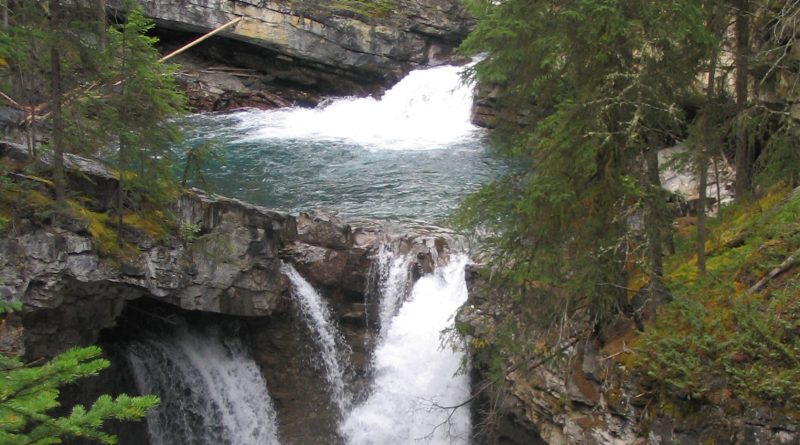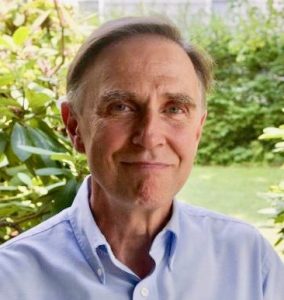Opinion: Who Matters? Love and Climate Change

Canadian Rockies: Photo: Russ Vernon-Jones

As part of prioritizing time with my family at this time of year, I decided not to write a new blog post this week. Instead, I’m inviting you to look back at the very first post I wrote as part of this blog more than four years ago, “Who Matters: Love and Climate Change” I try to re-read this post from time to time. It reminds me of things I want to always remember. Please let me know whether this original post speaks to you as we head into 2024.
I also want to thank you for every step you have taken for justice and toward solving the climate crisis in the last year. For you, and for all of us, I wish you a year in which:
- we help peace, justice and human rights come to the people of Gaza, Israel, the West Bank, Ukraine, Sudan, and other African countries (Roughly 40 million people in Africa have been displaced from their homes by armed conflict, often within their own nations.)
- we take initiative to preserve democracy and turn back the rise of fascism in the United States, and
- we redouble our efforts to solve the climate crisis on behalf of all of humanity and other living things.
We live in troubling times, but they are also times full of opportunity to connect with our fellow human beings and make a big difference.
Wishing you courage, love, and persistence.
Love is a powerful force. Many of us love the natural environment – with all its variety and beauty around the world. Many of us love our fellow human beings – with all their many skin colors, cultures, and living situations around the world. This heart-felt caring is part of what makes us human.
It is an immense challenge to fully face the crisis that climate change now poses – to our planet, the human species, and other life forms. It feels too big, too overwhelming, too intractable for us to keep looking at it.
Yet, if we are going to act on our love of our natural world and its people, we must look. We must look, and learn, and act. Perhaps we must also feel heartbroken, overwhelmed, outraged, afraid, and helpless, yet not let those feelings stop us from joining with others to do what needs to be done.
Two Farmers in India
I met Aadya at a conference last summer. She’s a nurse who lives in Pune, India. She has been moved to try to do something about climate change by her experiences at home. She teared up as she told me about two low-income friends of hers who are farmers. She said that for hundreds of years, if not thousands, the monsoon rains in her region have been reliable. The farmers know they will start in late June and once they start, the rain comes regularly for several months.
In 2016 these two farmers planted their precious seed just before the rains were to start, working hard to get the seed in the ground in time. The rains came as expected and the seed started to sprout nicely – beautiful long rows of tender green shoots. But then the rains stopped. They had day after day of hot dry sun that killed all the fresh sprouts. As they walked their fields, the soil they had recently tilled was baked so hard by the sun that it was like walking on concrete with heat radiating from the surface. The rains did resume, but by then the plants were all dead and the farmers had nothing. They didn’t have money to buy new seed.
Poverty and Hunger
In many parts of the world, climate change is causing droughts, floods, and disruption of normal rainfall patterns and temperatures. The agricultural disruption is enormous and too many communities are already experiencing increasing food-insecurity and poverty as a result. According to the United Nations, without climate change, most areas of the world would experience a reduction in poverty over the coming years, but with climate change, as many as 165 million more people will be forced into extreme poverty and food insecurity by 2030. That’s just in the next 11 years, and the results of climate change will get even worse after that, given our current limited progress.
Racism
What does this have to do with racism? The short answer is that over the last 500 years the predominately white nations of Europe, and later also of North America, have extracted wealth from the predominately black and brown nations of the “global south”, dominated and ruled these nations for their own advantage, left them impoverished and underdeveloped, and stolen and enslaved millions of Africans. At the same time, these same predominately white nations have pursued industrial development through the use of fossil fuels and emitted such vast amounts of carbon dioxide and other greenhouse gasses into the atmosphere that the climate of the entire world is being dangerously disrupted.
While the effects of climate change are already being experienced everywhere, they are being experienced with disproportional severity in the predominately black and brown nations – nations that have done the least to contribute to the causes of climate change, and nations that due to relative poverty are least able to deal with drought, flooding, heat, disease, agricultural disruption, etc.
This is not primarily the racism of individual prejudice, meanness, or discrimination (although there is still plenty of that around, too). This is the racism of predominately white societies and nations thinking they have a right to be dominant, to pursue their own greed at the expense of others, to act for their own advantage without regard for the effects of their actions on people of color (including indigenous people in North America and worldwide), and to take no responsibility for the effects of their own actions.
Our Role
The United States has emitted more greenhouse gasses cumulatively than any other nation. Although China now emits more per year than we do, our per capita emissions are still more than twice those of China. With the whole world experiencing increasing numbers of climate refugees, increasing poverty, increasing catastrophic storms and flooding, disease, and agricultural disruption; with the planet facing the possibility of climate change reaching run-away, irreversible proportions, we still are not making an all-out effort to meet even the most modest targets for reducing our current emissions. We are doing virtually nothing to help less-developed nations deal with the climate problems that we played such a lead role in creating.
Worse yet, the majority of the population of the United States is not rising up in protest and insisting that we change our ways. Surely basic morality, basic human caring, and seeing humanity in everyone around the world, calls us to come together to act to reverse climate change; calls us to put the common good of all peoples ahead of individual, group, or national greed or dominance. How we do this is complex and will require all of us participating in some way. We can start by deciding that everyone, everywhere, matters.
Russ Vernon-Jones was principal of Fort River School 1990-2008 and is currently a member of the Steering Committee of Climate Action Now-Western Massachusetts. He blogs regularly on climate justice at www.russvernonjones.org.

As a principal Mr. Vernon – Jones amazingly you neglected to remember education for families, families that could be living on that large amount of conservation land that Amherst monopolizes for itself.